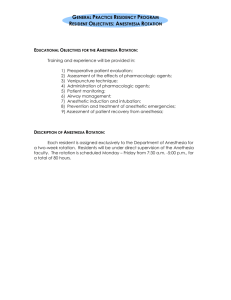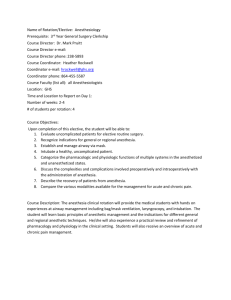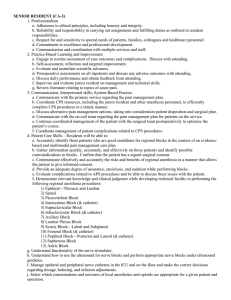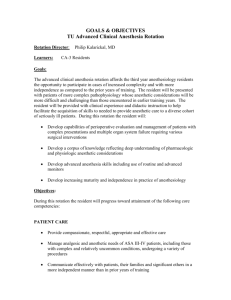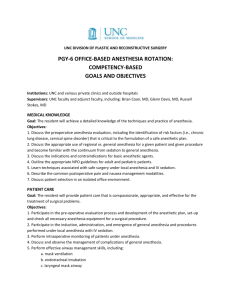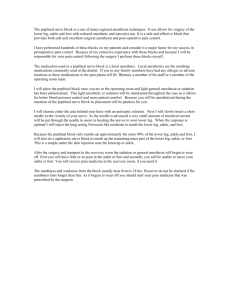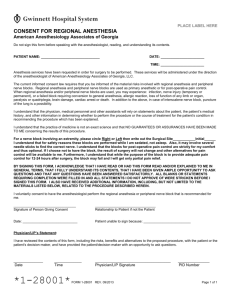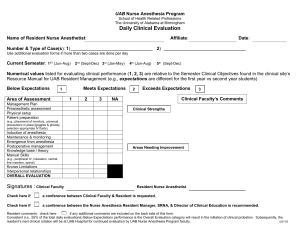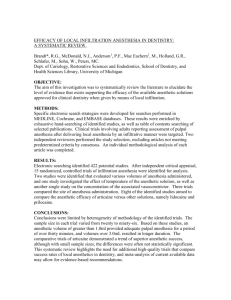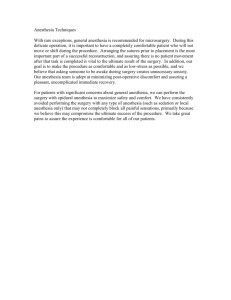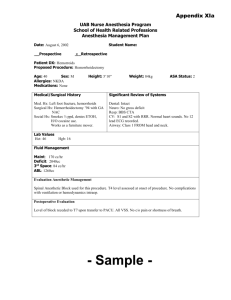REGIONAL/ACUTE PAIN SERVICE
advertisement
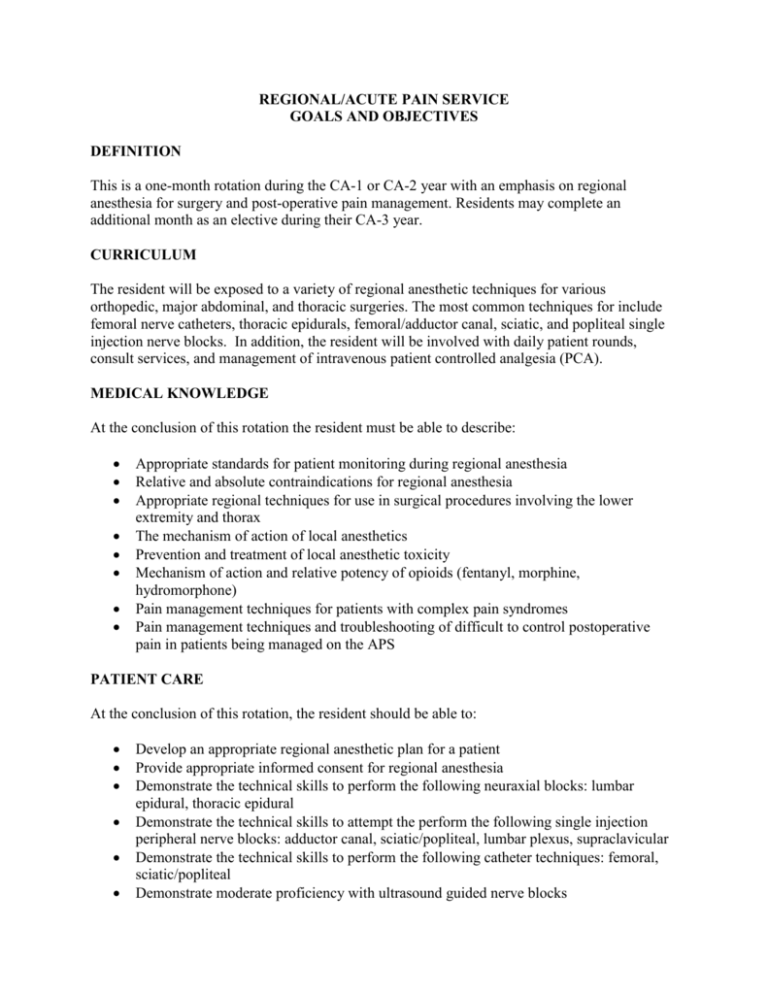
REGIONAL/ACUTE PAIN SERVICE GOALS AND OBJECTIVES DEFINITION This is a one-month rotation during the CA-1 or CA-2 year with an emphasis on regional anesthesia for surgery and post-operative pain management. Residents may complete an additional month as an elective during their CA-3 year. CURRICULUM The resident will be exposed to a variety of regional anesthetic techniques for various orthopedic, major abdominal, and thoracic surgeries. The most common techniques for include femoral nerve catheters, thoracic epidurals, femoral/adductor canal, sciatic, and popliteal single injection nerve blocks. In addition, the resident will be involved with daily patient rounds, consult services, and management of intravenous patient controlled analgesia (PCA). MEDICAL KNOWLEDGE At the conclusion of this rotation the resident must be able to describe: Appropriate standards for patient monitoring during regional anesthesia Relative and absolute contraindications for regional anesthesia Appropriate regional techniques for use in surgical procedures involving the lower extremity and thorax The mechanism of action of local anesthetics Prevention and treatment of local anesthetic toxicity Mechanism of action and relative potency of opioids (fentanyl, morphine, hydromorphone) Pain management techniques for patients with complex pain syndromes Pain management techniques and troubleshooting of difficult to control postoperative pain in patients being managed on the APS PATIENT CARE At the conclusion of this rotation, the resident should be able to: Develop an appropriate regional anesthetic plan for a patient Provide appropriate informed consent for regional anesthesia Demonstrate the technical skills to perform the following neuraxial blocks: lumbar epidural, thoracic epidural Demonstrate the technical skills to attempt the perform the following single injection peripheral nerve blocks: adductor canal, sciatic/popliteal, lumbar plexus, supraclavicular Demonstrate the technical skills to perform the following catheter techniques: femoral, sciatic/popliteal Demonstrate moderate proficiency with ultrasound guided nerve blocks INTERPERSONAL AND COMMUNICATION SKILLS Inform patients of the risks, benefits and alternatives for regional anesthesia Interface with the surgical service about regional anesthesia plans Interface with perioperative and floor nursing staff regarding patient management Determine patient satisfaction with acute pain services PROFESSIONALISM During this rotation, the resident will: Be respectful of patients, families and other members of the health care team Be responsible, punctual, responsive to pages or messages promptly Acknowledge errors, self-assess Be honest; adhere to a code of moral and ethical values; a “role model” Respect ethical and personal values of others Communicate effectively with appropriate self-confidence React to stressful situations in an appropriate manner Rev. 9/2015 2
